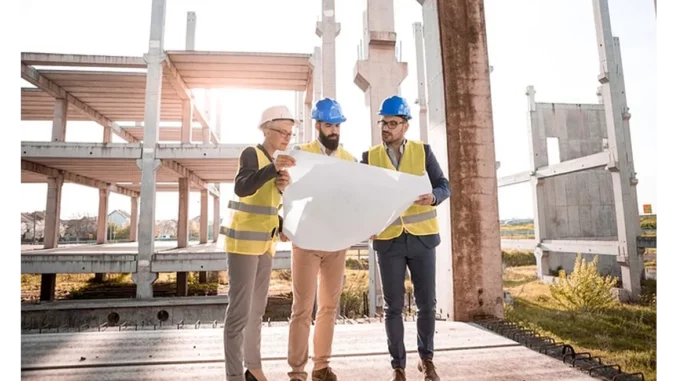
In recent years, the demand for affordable housing has placed enormous pressure on the construction industry to deliver solutions at a pace and scale beyond the capabilities of traditional methods. Off-site construction, often termed Modern Methods of Construction (MMC), is emerging as a pivotal approach in this context. However, the journey towards incorporating off-site methodologies in the affordable housing sector is laden with both challenges and opportunities that warrant careful scrutiny.
Focus360 Energy: property compliance services – pre-planning to post-construction. Learn more.
Off-site construction involves the prefabrication of building components within a controlled factory setting, which are then assembled on the construction site. This approach offers multiple benefits, such as reduced construction timeframes, enhanced quality control, and improved sustainability. Homes England, a central figure in the United Kingdom’s housing landscape, recognises off-site construction as a strategic avenue to bolster the delivery of social housing. Nevertheless, transitioning to these modern methods has encountered significant hurdles.
A roundtable discussion, hosted by Place North West alongside Saint-Gobain, revealed that the UK’s affordable housing sector is not yet fully prepared for a comprehensive shift to off-site construction. Traditionalists within the sector remain sceptical, and housing associations have yet to wholly embrace these innovative techniques. This scepticism is exacerbated by the teething troubles of MMC, marked by notable setbacks that have undermined the confidence of developers, investors, and housing associations alike.
A primary challenge in adopting off-site construction within affordable housing lies in its economic viability. Developers are persistently challenged to ensure the financial feasibility of projects, particularly in regions where property values are insufficient to offset the heightened costs associated with MMC. Affordable housing providers, constrained by government-imposed rent ceilings, find it particularly difficult to integrate MMC without eroding affordability. The prevailing cost of living crisis further intensifies this predicament, as social housing providers are reluctant to transfer the increased costs of MMC to tenants already facing financial hardships. Consequently, developers are caught in a difficult balancing act, striving to reconcile the need for innovative construction methods with the imperative of maintaining affordability.
Moreover, the supply chain poses a significant obstacle. Numerous partners and subcontractors in the construction industry struggle to adapt to the novel processes mandated by MMC, creating resistance that impedes widespread adoption. Quality concerns are also prevalent. Developers have reported issues with the quality of outputs from MMC contractors, specifically those employing Category 1 methods, which involve the factory production of entire units. These approaches often prioritise production efficiency over customisation, resulting in a disconnect between developers’ expectations and the delivered products.
The regulatory framework adds another layer of complexity. Stricter building regulations, designed to enhance energy efficiency and safety, present challenges for developers seeking to integrate MMC into their projects. Additionally, the categorisation of MMC into seven types, spanning from complete 3D units to improved site processes, complicates decision-making for developers. The consensus from industry discussions has suggested that focusing on Category 2 methods—pre-built panelised solutions—might offer a more practical approach for the current market. These methods strike a balance between modular construction and traditional practices, delivering a compromise between customisation and efficiency.
For off-site construction to become a credible component of the affordable housing arsenal, several critical steps are necessary. Simplifying off-site solutions and aligning them more closely with market demands is essential. Educating the workforce and stakeholders about the advantages and limitations of MMC can help overcome resistance and build confidence in these methods.
Off-site construction holds considerable promise in addressing the affordable housing challenge, but its successful implementation necessitates a collaborative effort from all stakeholders. By proactively tackling the challenges and leveraging the strengths of MMC, the housing sector can move towards its objective of providing affordable, high-quality homes for all. This approach, if executed effectively, has the potential to redefine the future of affordable housing, offering a sustainable and scalable alternative that meets the increasing demand for homes.


Be the first to comment